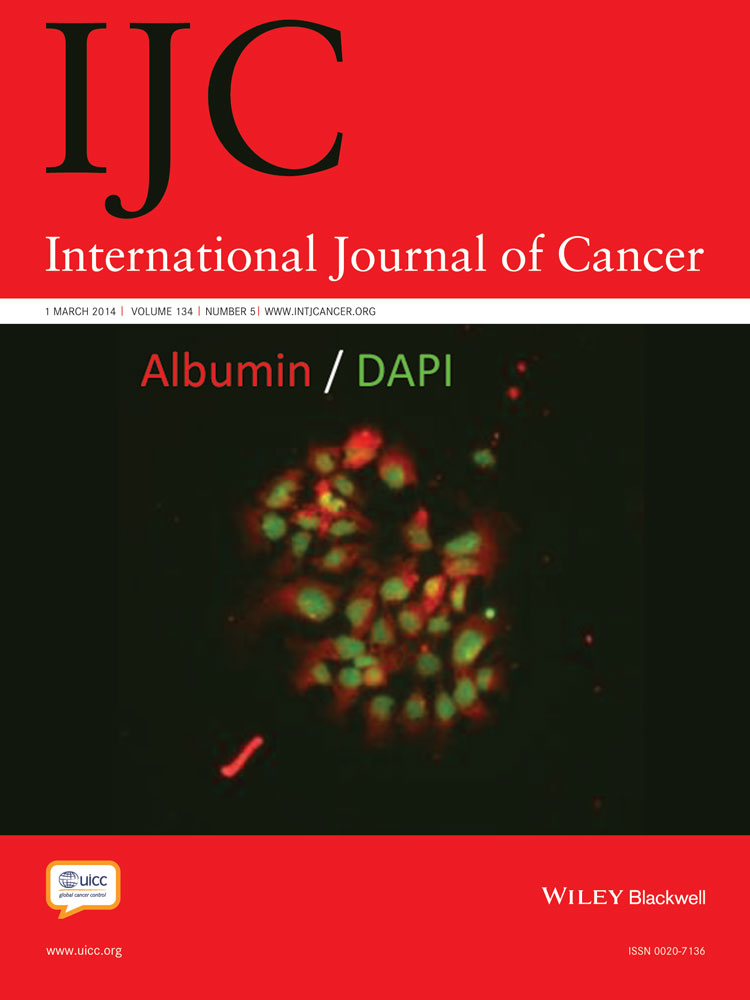Sleep duration and breast cancer risk: A meta-analysis of observational studies
Abstract
Studies on the association of short or long sleep duration with breast cancer risk have reported inconsistent results. We quantitatively assessed this association by conducting a meta-analysis based on the evidence from observational studies. In April 2013, we performed electronic searches in PubMed, EmBase and the Cochrane Library to identify studies examining the effect of sleep duration on breast cancer incidence. The odds ratio (OR) was used to measure any such association in a random-effects model. The analysis was further stratified by confounding factors that could bias the results. A total of six studies (two case–control and four cohort studies) involving 159,837 individuals were included in our meta-analysis. Our study did not show an association between either short or long sleep duration and breast cancer risk (short sleep duration data: pooled OR = 1.01, 95% confidence interval (CI) = 0.90–1.14, p = 0.853; long sleep duration data: pooled OR = 0.95, 95% CI = 0.86–1.04, p = 0.251). Moreover, we did not identify any statistically significant association between sleep duration and breast cancer risk in all the subgroup analyses. In conclusion, our findings indicate that sleep duration has no effect on breast cancer risk.
Abstract
What's new?
Sleeping too little or too much may increase a person's risk of mortality from any cause. But whether this is true for breast cancer is unclear since previous studies have yielded inconsistent results. In this meta-analysis of six observational studies involving nearly 160,000 individuals, neither short nor long sleep durartion was found to be associated with breast cancer risk. Inconsistencty in sleep duration critera among the studies analyzed, however, suggests that further investigation is needed to clearly rule out possible associations.




